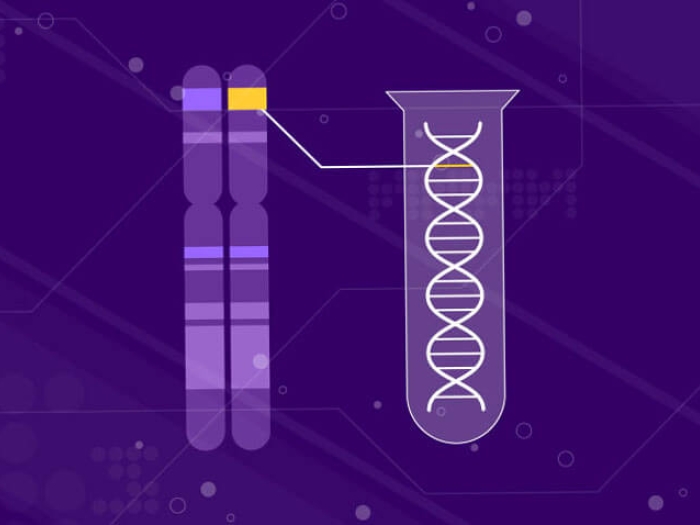Cancer can bring with it a mix of emotional, physical, spiritual and practical concerns. Get tips and tools to help you identify, monitor and address distress as part of cancer treatment.
5:00 AM
Author |

Feeling anxious, sad or helpless? Having trouble concentrating, sleeping or completing everyday tasks? Worrying about family members, work or finances? Mental health professionals sum up troubles like these with one word: distress.
Everyone with cancer feels some distress, and about half of patients with cancer will experience a significant level of distress at some point. Yet too often, cancer-related distress goes undiscussed and unaddressed.
"Treating distress is an important part of treating cancer, says Michelle Riba, M.D., M.S., director of the PsychOncology Program at the University of Michigan Rogel Cancer Center. "In the past, the medical community had been slow to acknowledge this. In fact, cancer centers were not required to regularly screen patients for distress until 2015."
LISTEN UP: Add the new Michigan Medicine News Break to your Alexa-enabled device, or subscribe to our daily updates on iTunes, Google Play and Stitcher.
No one knows that history better than Riba, who's worked with patients around the emotional side of their treatment for more than 25 years. She played a leading role in establishing, evaluating and improving the National Comprehensive Cancer Network clinical practice guidelines for distress management. The guidelines help doctors, clinicians and patients identify and address cancer-related distress.
Here, Riba addresses some of cancer patients' most common notions about distress.
Of course I'm down, I have cancer. I can't expect to feel good.
Some amount of distress is expected with cancer or any serious illness, and many cancer treatments are known to worsen symptoms like fatigue, pain, anxiety and depression.
SEE ALSO: 7 Ways to Fight Cancer Fatigue
But by ignoring or downplaying your concerns, you run the risk that these symptoms could get worse. Checking in about your feelings and concerns on a regular basis will help you and your care team track symptoms of distress and address problems before they escalate.
I'm embarrassed to bring up my feelings at a clinic appointment. It's intimidating enough to talk about what's happening in my body.
At a time when you're already feeling vulnerable, it can be overwhelming to find the words – and the courage – to bring up other uncomfortable subjects.
Fortunately, you don't have to be the one to start the conversation. Cancer center doctors and staff are now required to provide distress screening and follow-up. How they do that varies among cancer centers and even among clinics in a given center, but most rely on simple, worksheet-like screening tools designed and tested to be reliable and easy-to-use.
Think of distress as another vital sign, not as a distraction.Michelle Riba, M.D., M.S.
One example is the Distress Thermometer. On a one-page worksheet, patients assign a numerical score to how much distress they have experienced over the last week, then check specific concerns from a detailed list of practical, family, emotional, spiritual and physical issues. Clinicians use tools like these to both measure distress and focus on topics for follow-up.
I need to focus on treatment. My mood is the least of my concerns.
Distress can impact your cancer treatment in several important ways:
-
Distress can affect how you function and focus, making it harder to make decisions about your care.
-
Distress can impact your ability to take part in your own treatment. Research shows that people who are distressed are less likely to take medications as prescribed or to keep appointments for treatment or follow-up screenings.
-
Distress can make it much more difficult to make lifestyle changes like quitting smoking that lower the risk of cancer recurrence.
Paying attention to your emotional and practical concerns is actually one of the best ways you can participate in your cancer care.
My care team has limited time. I don't want to distract them with other issues.
Even in the busiest clinic, the care team needs a complete picture of your health, both physical and emotional, to make sure you have the right treatment plan in place and can adhere to that plan.
You're probably used to having your vital signs taken. Would you ask your doctor not to measure your temperature, pulse or blood pressure, or not to inquire about physical pain you might be experiencing? Think of distress as another vital sign, not as a distraction. Tools like the Distress Thermometer are an efficient way to track this vital sign.
MORE FROM MICHIGAN: Sign up for our weekly newsletter
I've always felt like this. Having cancer just makes it worse.
Often distress began before a patient's cancer diagnosis. Just as your care team needs to know about pre-existing conditions like diabetes or high blood pressure, they also need to know about issues like a previously diagnosed psychiatric condition, such as depression, anxiety or substance use. Left unaddressed, these issues can make coping with cancer and cancer treatment much more difficult.
It's no big deal. I'm just worried about money (or family, or work…).
Practical concerns can be just as significant as physical or emotional symptoms. Regardless of the issue, if it's causing distress, it's important to acknowledge it.
That brings up another important point about screening for distress. Screening tools don't just recognize distress – they are the first step in doing something about it.
The Distress Thermometer, for example, lists 39 different problems, divided into five categories: practical, family, emotional, spiritual/religious and physical. Those categories help determine the right resources and referrals to suggest.
For example, at the Rogel Cancer Center, emotional and family problems are often referred to the PsychOncology Clinic, while members of the Social Work staff address practical problems, and Michigan Medicine chaplains are available for spiritual counseling.
Bottom line: Cancer-related distress is common. It's significant. And taking care of it is part of taking care of you.
To learn more, visit this patient-friendly version of the NCCN Distress Guidelines that's free for anyone to download and use.

Explore a variety of health care news & stories by visiting the Health Lab home page for more articles.

Department of Communication at Michigan Medicine
Want top health & research news weekly? Sign up for Health Lab’s newsletters today!





